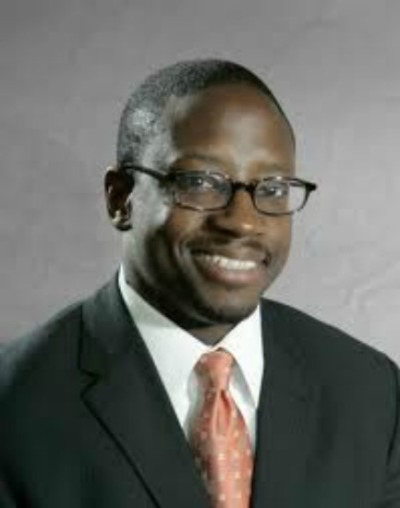There Are No 'Black Leaders,' Including Al Sharpton

Who are the leaders of the "white community"? Who are the leaders of the "Asian American community"?
These questions seem silly given the fact that whites and Asians Americans are considered to be free thinking individuals who do not need ethnic leadership. For reasons that I cannot understand, white progressives and conservatives alike seem stuck in the 1960s whenever they use phrases like "leaders of the black community." What is even more bizarre is the seemingly fetish-like attachment to the archaic notion that people in black communities look to someone like Al Sharpton as a leader.
If there is one thing black progressives and black conservatives have in common it is the shared opinion that Al Sharpton is irrelevant and does not represent "black interests" because there is no person who fills this role. Al Sharpton represents himself and whatever particular non-profit he leads. That's it. Nothing more.
How did we get here? During the enslavement of African Americans in this country it was customary on plantations for slave masters to designate a mediator between slaves and the people to whom they were owned to communicate demands, grievances, and the like. Increasingly, these became religiously grounded leaders as the plantation church became its own institution. Because African Americans were not given any other leadership paths during slavery much of those energies, and the practice of federalism, happened within the context of the black church. During Reconstruction and through World War II, with the eventual emergence of Jim Crow laws, the black pastor emerged as the primary voice of black communities all over America. The Civil Rights Movement was the last best example of the role that black pastors played as mediators between the dominant culture and minorities.
Beginning in the 1970s, African Americans were more free to participate in the various modes of leadership outside of the church that were previously closed off. After the death of Martin Luther King, Jr., African Americans were more free to ascend to prominent positions in the marketplace and in politics. The role of the black pastor, then, began to wane as the mediating voice between black communities and the mainstream culture because African Americans were now in Congress, becoming mayors of cities, sitting on city councils, and so on.
The role of the black pastor as a community leader forever changed. It is almost as if the mainstream culture is unaware that this shift happened. It is as if the dominant culture is unaware that black pastors have a significantly less credible role in the black communities across America on social issues for those born after 1970 than they did for black baby boomers. Why, then, are whites so obsessed with someone as played out, archaic, and irrelevant as Al Sharpton?
The answer may have to do with the fact that some in the dominant culture are not yet willing to accept that fact that African Americans are free-thinking individual persons, like whites and Asian Americans, who come to their own individual conclusions about issues as full participants in America's representative democracy. African Americans are not all alike. African Americans are just as ideologically diverse as whites and Asian Americans. There are progressive public critics like Cornel West and Michael Eric Dyson as well as libertarian black voices like Thomas Sowell and Walter Williams, just to name a few. Al Sharpton represents none of them. In fact, Cornel West and Al Sharpton found themselves in a heated debate over the effectiveness of Barack Obama's presidency.
Moving forward, perhaps, the best thing for all of us is to do is to move away from Sharpton altogether. No politician nor corporate executive ever needs to meet with him about anything. He has been categorically rejected by so many in black communities that requesting his counsel makes less and less sense over time. African-American writers like Ashley Naples wrote an open letter to white people saying, "It's time that you realize how insulting it is to our intelligence that you think one person or a handful of organizations can speak on our collective behalf. They can't, and it's time that you realize that."
Even Oprah Winfrey recently snubbed Sharpton. Over at Salon.com Rutgers University African American studies professor Brittney Cooper, explains why she pays no attention to Sharpton as someone born after 1970 saying, "Al Sharpton, however, does not have the ear of this generation, and it is not his leadership that any of us who will live on the planet for the next half-century or so really needs." The bottom line is simply this: the only people who seem to pay attention to Al Sharpton are white people and we are all wasting a lot of time talking about him as a result.
"Well, what about Jesse Jackson and Al Sharpton" is a common question raised in relation to all sorts of race-related issues but, in 2015, it remains a persistently ignorant one. What about them? Who cares what they think? They are simply individuals who represent personal opinions that are theirs and theirs alone and they should be treated that way. Whites, Asians, and Hispanics have no annual meeting where their ethnic leaders are elected and the same is true for American Americans.
If anyone speaks as if Jesse Jackson or Al Sharpton are "black leaders," or that there even is a such thing, please ignore that person. They are trapped in the thinking of a by-gone era that ended at Martin Luther King, Jr.'s funeral.




























